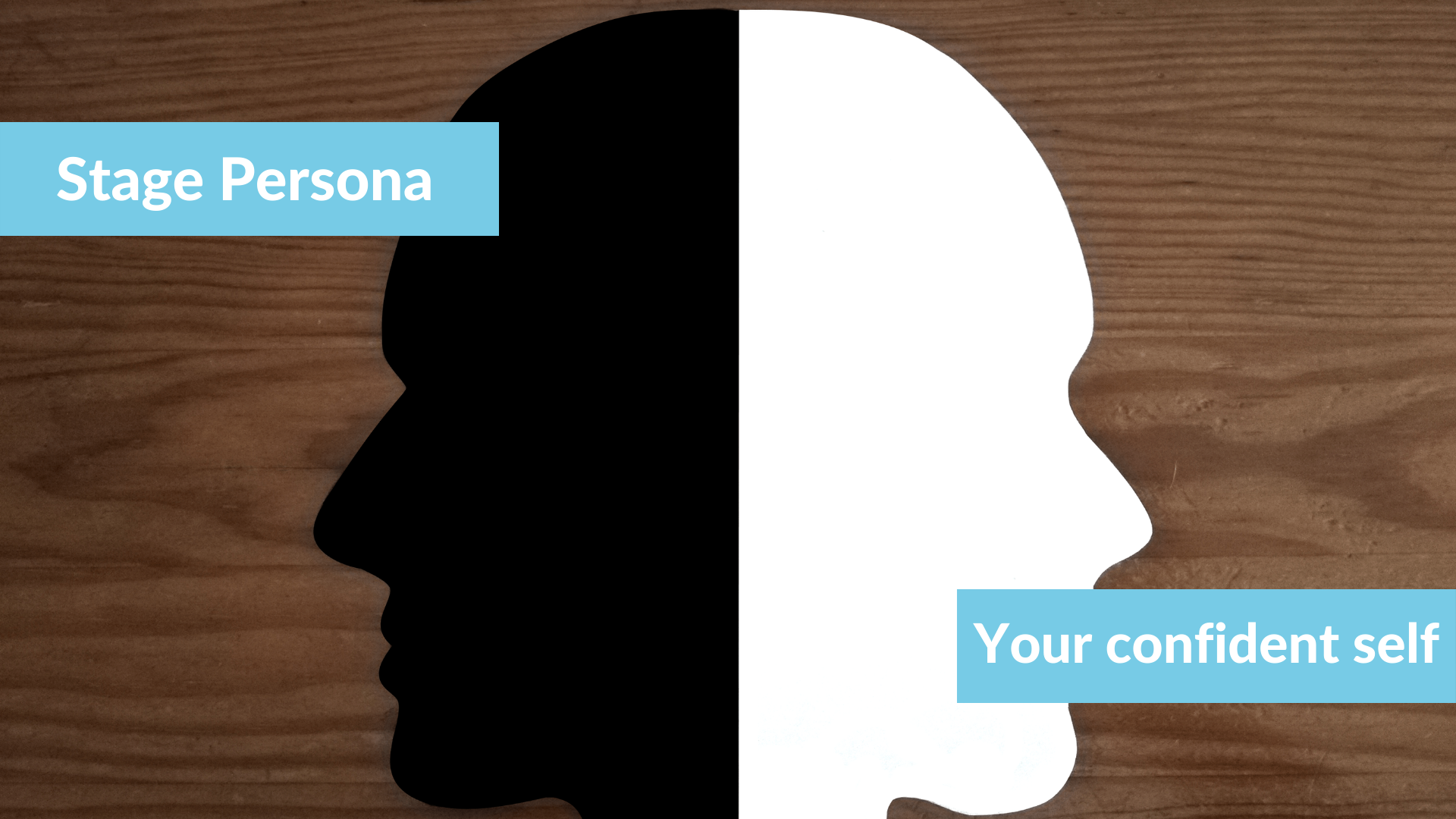Your cart is currently empty!

Projecting confidence – How to create a stage persona
When do you think about a stage persona or alter ego? You probably think about artists – especially musicians. It is pretty common for them to change their real names and create a persona for the public.
You can find plenty of outstanding stage personas, like Bob Dylan, Elton John, Lady Gaga, or some more discreet ones, like Keanu Reeves. So, what does it have to do with public speaking?
The psychology of a Stage Persona
Persona means mask in Latin, and the concept has existed since the first men started telling stories.
Using a persona means that it’s not you; it’s someone else. This partly-fictional alter-ego is this way a tool which allows an artist to create a distance between themselves and their performances. It frees them from their own prejudices, allowing them to do what they could never otherwise. It also helps them to protect and separate their private self from the one on stage.
Now, that you can better understand how a stage persona works, what can it do for your public speaking?
Creating this alter ego can help you, even if you’re shy, to have a strong and confident stage persona. It helps you come across as more extroverted and reliable for your audience.
The main rule to create your own alter ego? It has to be consistent from performance to performance.
Practical guide steps to create a stage persona
You don’t need to change your name or anything so radical. Also, it doesn’t happen overnight. Creating a stage persona is a process of experimentation. Here are five tips that can help you develop yours.
1. It must have something of yourself
It is contra-productive to create an entirely new personality. To ease the process, you must recognize yourself in it. It must have a part of your off-stage personality. Bring something that helps you to connect with your persona and doesn’t make you feel fake.
You can think of it as a better version of yourself. Something that you think is good and works well on stage. The part of your true self can be the way you move across stage, maybe the power of your voice, and emphasize it. Anything that you already have and makes you feel confident should be incorporated into your stage persona.
Personalities are complex, and you have many traits. Pick one that is already perfect, in the sense that you will come across as you want to your audience, and project it on stage.
2. Find a voice that sets you free
Most stage personas are born of the fact that the person is shy. You need to break free from your shyness, and the persona you’re creating should help with that process.
It just makes you feel free, confident, and secure. To facilitate the initial stage, you can think of it as a character. How should your character be, to be able to do what you need, but can’t, do by yourself?
A stage persona frees you to get experimental and helps your creativity flows.
3. Observe others performances
You may never have thought of it, but other people have their own stage personas, even if it isn’t that obvious. They may not have changed their name or used weird clothes, but that person on stage is usually not who they are in private. If you think about it and observe, you may notice this in colleagues or others you interact with.
Observe them with all your attention. What do you like? What do you think works? Then, pick up the traits you admire and get inspired.
4. Experiment in a safe space
You’ll not win the first time. Creating the ideal persona takes time, effort, and… practice. So find a place where you can practice as much as you need. (Remember that our Virtual audience will never get bored and will listen to you for hours and hours.)
Record your performance and watch yourself. Did you like it? No? Try again. Experiment, practice, rehearse.
The more stage time you have (even in a virtual environment), the more you know your strengths and weaknesses. Use all the practice to know what is good and what needs improvement.
5. Passion
Passion is vital for this to work, and it has two sides – both extremely important.
First, find a persona about who you are passionate. Remember that you’ll BE that person for long hours. You must like and admire them.
Second, your persona’s most important trait: it must be passionate about your topics. You can’t reach an audience if you’re bored yourself, right? So, you need to be enthusiastic! Enjoy what you’re doing.
The ideal persona
Creating a stage persona can be of great help for you, especially if you are shy. Yet, it requires a lot of determination and time to build. It helps you create your stage presence, which is vital to capture your audience’s full attention.
It may feel artificial for you at first, but the more you experiment and practice, the more natural it will feel.
Then you’re free to amaze your audience!
Cátia is a psychologist who is passionate about helping children develop and train social skills.


Leave a Reply